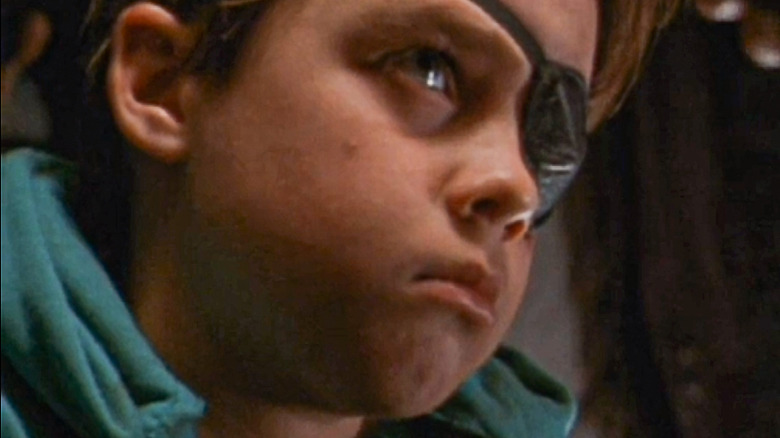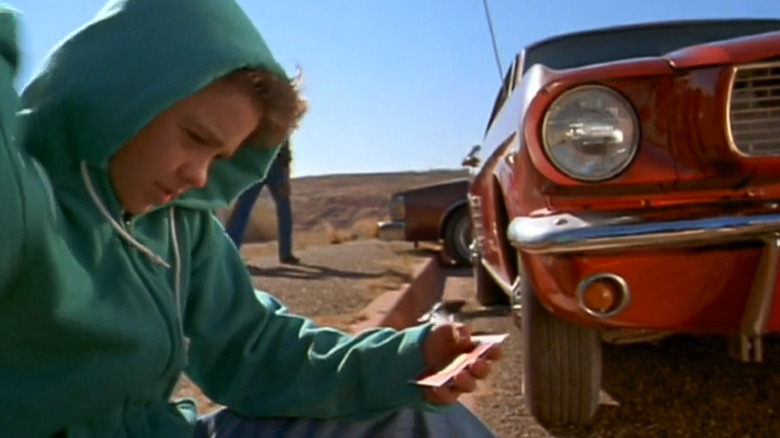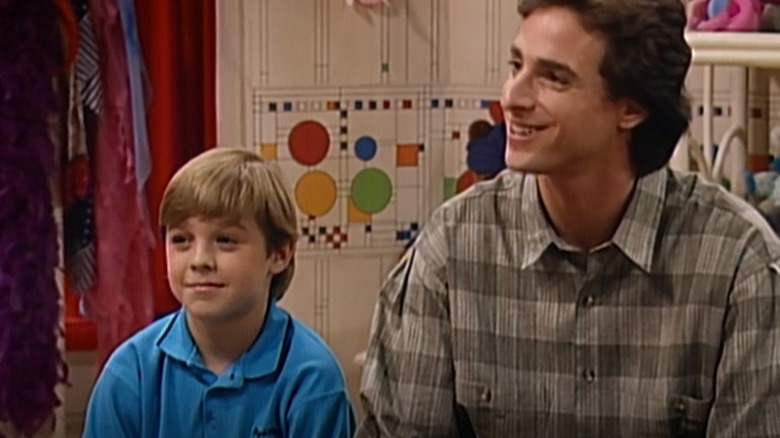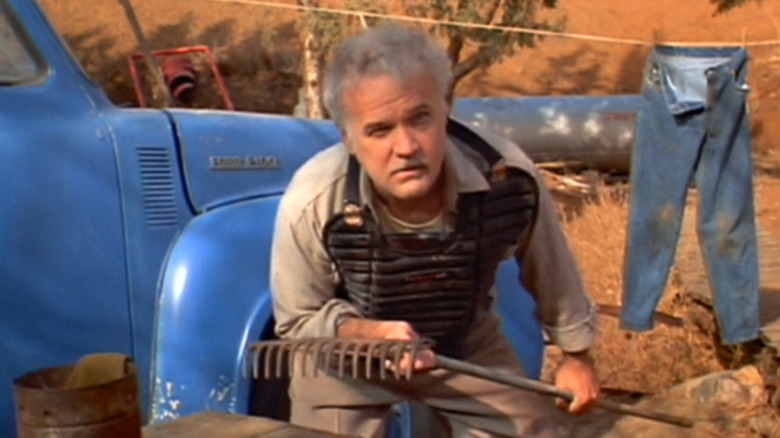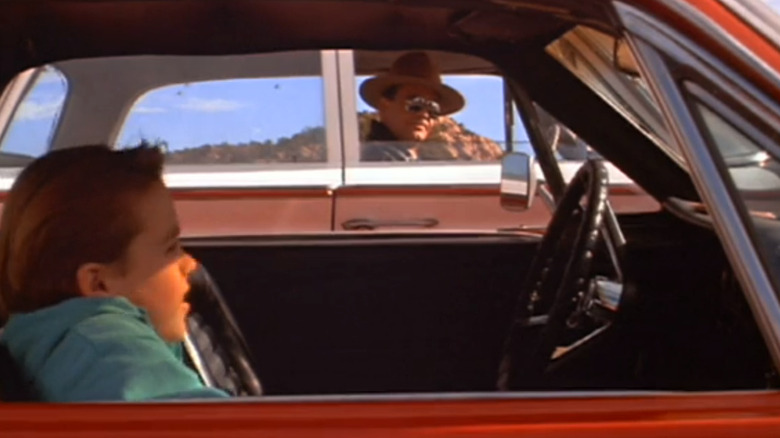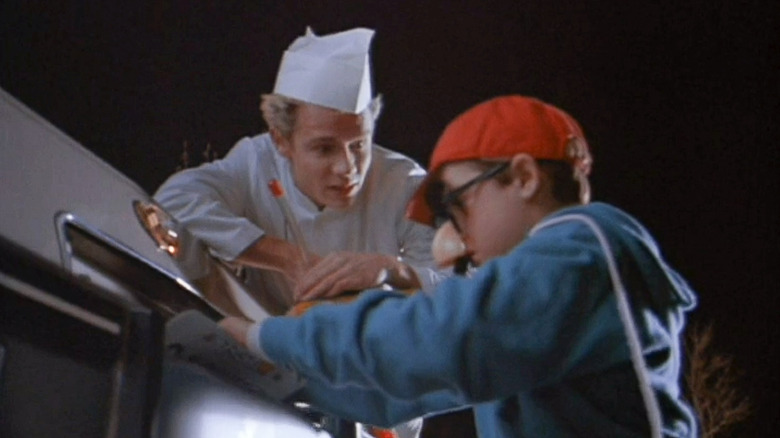The Best Road Movie Is One You've Never Even Heard Of
In 1903 Vermont doctor Horatio Nelson Jackson, mechanic Sewall K. Crocker, and their bulldog Bud took the nation's first cross-country road trip from San Francisco to New York. In 2003, Ken Burns immortalized their journey in the PBS documentary, "Horatio's Drive." In the century between, Hollywood has produced road movies of all kinds: earthbound dramas like "Easy Rider" and "Thelma and Louise," forays into strange yet familiar worlds (think "The Muppet Movie"), and the star-studded chaos of "It's a Mad, Mad, Mad, Mad World."
At the center of the square formed by those four road classics sits "Motorama," a 1991 film directed by Barry Shils ("Wigstock: The Movie") and written by Joseph Minion ("After Hours"). It's the harrowing yet heartwarming story of a 10-year-old boy named Gus (Jordan Christopher Michael), who flees his abusive parents, steals a fiery red 1965 Ford Mustang, and heads off across the country alone. It wasn't Shils and Minion's first collaboration — they also teamed up for perhaps the wildest Nic Cage performance ever put on film, "Vampire's Kiss." While "Motorama" doesn't have an unhinged Cage screaming the alphabet at his therapist, the dark fantasy and coming of age quest is full of treats for anyone willing to sign up for the delightful (but baffling) 90-minute ride.
The premise of Motorama is simple but leaves plenty of room to get weird
Although "Motorama" is clearly shot in the American southwest, its world is a significantly twisted version of ours. The states have unfamiliar names like Lydon and Caspian, the bills Gus spends are Dutch guilders, and very few of the folks he encounters seem to notice that he is a child on a solo road trip. Gus sees a billboard advertising a promotional game with a grand prize of $500 million and no expiration date and starts hunting down lettered game cards — available with any $5 purchase at participating Chimera gas stations — hoping to spell out "Motorama" and win the huge payout.
Writer Joseph Minion dipped into ancient lore to brand his fictitious gas station chain. The chimera was a monster in Greek mythology with the head of a lion, the body of a fire-breathing goat, and a snake for a tail. But the word has since evolved to mean an unachievable fantasy or impossible dream, and we watch Gus move painfully from one Chimera station to another chasing his unreachable goal.
In an interview on the podcast "They Called This a Movie," Minion said he modeled the promotional game after one called Tigerino, run by ESSO and ENCO gas stations in the late 1960s, and wanted to make "This kind of road movie about it, but it had to be in a kind of fantastical setting that was very absurdist in order for it to work." If fantastical and absurdist was the bar Minion was aiming to clear, he did so with room to spare.
Motorama was made mostly by Hollywood novices
Prior to anchoring and appearing in nearly every scene of "Motorama," Jordan Christopher Michael's only other acting work was in a four-episode arc on "Full House" as Rusty, the son of Danny Tanner's (Bob Saget) partner Cindy (Debra Sandlund). While neither that role nor this one vaulted him to stardom — he has just 10 more credits on his IMDb resume — Michael carries the film as Gus is thrown from one bizarre situation to another like a tumbleweed bouncing in the wake of his stolen Mustang. Among the standard road movie fare of cheap motels, dusty gas stations, and sketchy roadhouses, Gus picks up an assortment of physical and emotional scars and Michael does a fine if unsubtle job of carrying that damage.
The infrequent special effects are comically awful and there's lots of rust and blood, but "Motorama" is still visually striking, although that's creditable more to the awe-inspiring scenery of the American southwest than the cinematography of Joseph Yacoe. Yacoe brought a music video background to "Motorama" and it shows. The movie plays like a series of vignettes — the scenes are held together only by the thin thread of the game Gus is playing — and director Donald P. Borchers ("Children of the Corn") relies heavily on The Police guitarist Andy Summers' score to provide emotional cues.
But if it was Yacoe's music industry connections that landed Meat Loaf, Flea, and MTV VJ Martha Quinn for their small roles in "Motorama," their appearances more than make up for his sometimes-haphazard filmmaking.
Motoroma has many hilarious and memorable cameos
The true delight of "Motorama" is the supporting cast of veteran Hollywood notables, and many of the strange folks they inhabit are side-eyed tributes to existing film or television characters. There's John Diehl ("Stripes," "The Client") as gas station attendant Phil, an obvious homage to Steve Martin's Navin Johnson in "The Jerk." Mary Woronov ("Rock and Roll High School," "Death Race 2000") and Sandy Baron (Jack Klompus on "Seinfeld") play a predatory swinger couple that are a twisted fun-house mirror reflection of Woronov and Paul Bartel's characters in "Eating Raoul." Jack Nance ("Twin Peaks," "Eraserhead") is creepily perfect as a squirrel-hunting motel clerk who invokes strong notes of "Caddyshack" groundskeeper Carl Spackler (Bill Murray), while Murray's fellow Saturday Night Live alum Garrett Morris and longtime character actor Michael J. Pollard provide some sour laughs as Chimera attendants Andy and Lou.
Although she was featured prominently on the film's posters and home video packaging, Drew Barrymore is on screen for barely 10 seconds as a hallucination Gus uses to disassociate during his most disturbing assault. He escapes and later hustles $100 in gas money from a man at a rest stop played by Dick Miller — best known as Mr. Futterman in "Gremlins" — who then abandons his two children in the woods. The moment is somehow side-splittingly hilarious and horribly devastating all at once, like most of Gus' encounters.
Motorama is not without its flaws or rough spots
There aren't many children in "Motorama" but most of them, including Gus, are subject to unspeakable trauma throughout the story. Our protagonist loses bits of his innocence with every physical and emotional injury suffered, and his journey gets darker as it moves on. The movie's most you-have-to-see-it-to-believe-it scene comes when he crosses into Essex (motto: "The Last State"), which based on its location and massive freeway overpasses apparently represents California — poetic license added the public lynching, burning crosses, and Papal murder.
Gus seems to be merely facing the consequences of his own sociopathic behavior. He is rude and selfish throughout his quest and constantly puts the safety of others in jeopardy, making him kind of hard to root for. But Gus' unlikability isn't the film's only flaw. There are simple continuity errors — like a local policeman (Robert Picardo) who encounters Gus in at least two different states — and some sloppy production moments. An early scene shows two crew members running alongside the road trailing a kite while Phil chases it.
Considering its $1.8 million budget (per Variety) and the talent and logistics involved, it's not surprising that the makers of "Motorama" had to cut some corners. A 12-year-old Jordan Christopher Michael is clearly driving the car in several scenes, but the charm and beauty of "Motorama" aren't limited by its lack of production value or concerns for cast and crew safety.
Motorama comes to an intentionally confusing but perfect ending
"Motorama" ends with Gus back where he started but with apparently intact memories of his adventures, leaving us to wonder how much of the movie was reality and how much was fantasy. The physical damage Gus has suffered is repaired, but his emotional scars remain, and we can't be sure if he is a time traveler, a mythical creature, or just a boy with a very powerful imagination.
On the podcast "They Called This a Movie," Joseph Minion said that in scripting "Motorama" he wanted to leave the ending open to interpretation. "I don't know that I would want to dispel the sense of mystery ... I love it when there are some things you can't really explain." He even admitted to host Anthony Del Vecchio, "I don't even really understand it." Minion said the hazy ending was his intended destination for Gus all along, and he sought "Some wacky kind of penetration of another dimension, one way or the other, that would be a little confusing."
Despite the thick vein of disconcerting weirdness, at the heart of "Motorama" is a gentle message about kindness, karma, and good intentions. Come to see Flea bus tables and Paul Willson ("Cheers," "Office Space") stir the most disgusting pot of Yankee bean soup you've ever seen, but stay to see if Gus learns anything from his wild road trip.
